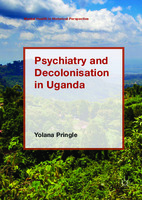Psychiatry and Decolonisation in Uganda
Abstract
This open access book investigates psychiatry in Uganda during the years of decolonisation. It examines the challenges facing a new generation of psychiatrists as they took over responsibility for psychiatry at the end of empire, and explores the ways psychiatric practices were tied to shifting political and development priorities, periods of instability, and a broader context of transnational and international exchange. At its heart is a question that has concerned psychiatrists globally since the mid-twentieth century: how to bridge the social and cultural gap between psychiatry and its patients? Bringing together archival research with oral histories, Yolana Pringle traces how this question came to dominate both national and international discussions on mental health care reform, including at the World Health Organization, and helped spur a culture of experimentation and creativity globally. As Pringle shows, however, the history of psychiatry during the years of decolonisation remained one of marginality, and ultimately, in the context of war and violence, the decolonisation of psychiatry was incomplete.
Keywords
Health; medicine; psychiatry; postcolonial Africa; mental illnessDOI
10.1057/978-1-137-60095-0ISBN
9781137600950OCN
1084375036Publisher
Springer NaturePublisher website
https://www.springernature.com/gp/products/booksPublication date and place
Basingstoke, 2019Imprint
Palgrave MacmillanClassification
Africa
East Africa
Uganda
African history
Psychiatry


 Download
Download Web Shop
Web Shop